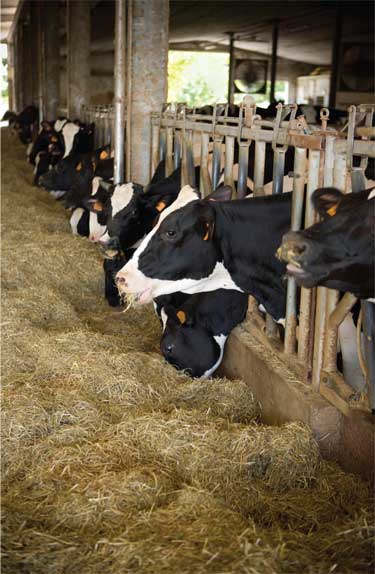Ruling gives FDA discretion in drug withdrawals
An appellate court overturned a ruling that would have made federal drug authorities start proceedings to withdraw some antimicrobial uses in agriculture.
 In a split opinion, a three-judge panel from the 2nd U.S. Circuit Court of Appeals in New York determined that the Food and Drug Administration has discretion over whether to start or end such proceedings. That decision, delivered July 24, overturns a lower court’s 2012 ruling that would have compelled the FDA to continue a process started in 1977 to withdraw approvals for uses of penicillin and tetracycline drugs in livestock feed at concentrations below those needed to cure disease.
In a split opinion, a three-judge panel from the 2nd U.S. Circuit Court of Appeals in New York determined that the Food and Drug Administration has discretion over whether to start or end such proceedings. That decision, delivered July 24, overturns a lower court’s 2012 ruling that would have compelled the FDA to continue a process started in 1977 to withdraw approvals for uses of penicillin and tetracycline drugs in livestock feed at concentrations below those needed to cure disease.
The proposed withdrawals were intended to address the risk that some drug uses were selecting for antimicrobial-resistant bacteria.
The FDA had halted the proceedings when Congress called during the 1970s and 1980s for more study. The FDA did not continue the hearings, and advocacy organizations sued the FDA in May 2011 on the basis of lack of action on the proposed withdrawals and on lack of final responses to 1999 and 2005 petitions that sought agency action.
The Natural Resources Defense Council joined four of the petitioners—Center for Science in the Public Interest, Food Animal Concerns Trust, Public Citizen, and Union of Concerned Scientists—in filing the lawsuit.
In December 2011, the FDA canceled the then 34-year-old withdrawal proceedings.
In the majority opinion from Circuit Judge Gerard E. Lynch and District Judge Katherine B. Forrest, the judges indicate Congress had not required that FDA officials hold hearings about concerns over animal drug safety, and whether to start or end withdrawal hearings “is a discretionary determination left to the prudent choice of the FDA.”
The judges also found that the FDA did not act in an “arbitrary and capricious manner” in denying the petitions, unlike the lower court.
Whether agency inaction on dangers cited in 1977 “represented politically-inspired foot-dragging or wise caution in developing a cost-effective approach, it was for the agency, and not the courts, to determine how best to proceed,” the ruling states.
Chief Judge Robert A. Katzmann wrote in the dissenting opinion that the FDA was refusing to use a process prescribed by statute for withdrawing approval of drug uses connected with the growing public health problem of antimicrobial-resistant bacteria. He said the law requires formal withdrawal proceedings when the FDA has a preliminary finding that an approved animal drug use is not shown to be safe.
“Today’s decision allows the FDA to openly declare that a particular animal drug is unsafe, but then refuse to withdraw approval of that drug,” he wrote. “It also gives the agency discretion to effectively ignore a public petition asking it to withdraw approval from an unsafe drug.”
The FDA has asked that pharmaceutical companies agree to withdrawal of approvals of production uses—such as to increase rate of weight gain—of antimicrobials deemed important for human medicine, as well as agree to remove over-the-counter access to such drugs. Agency officials have warned that they could take regulatory action if all affected companies do not comply by the end of 2016, and those companies have told the agency they would comply.
The affected products include some penicillin and tetracycline drugs.
The July 24 Appellate Court ruling is available here.